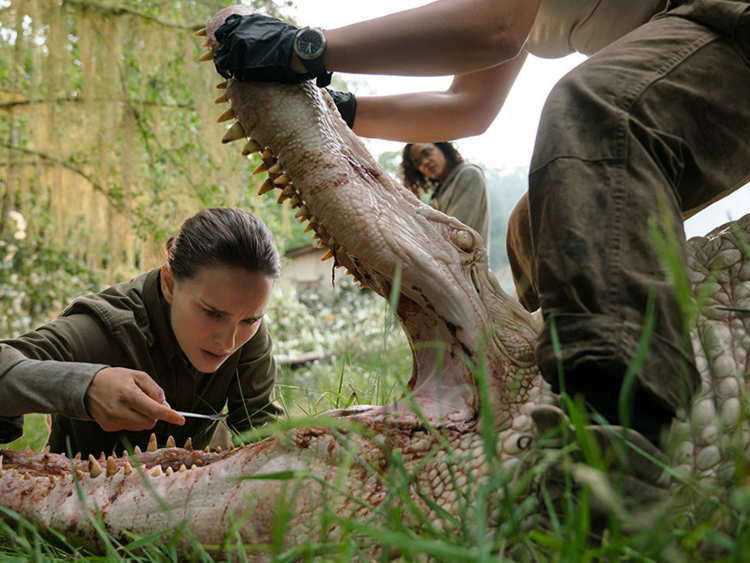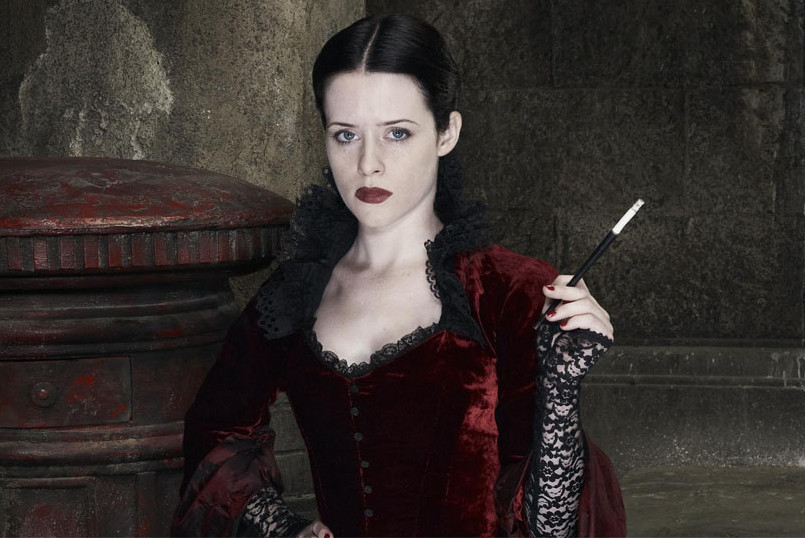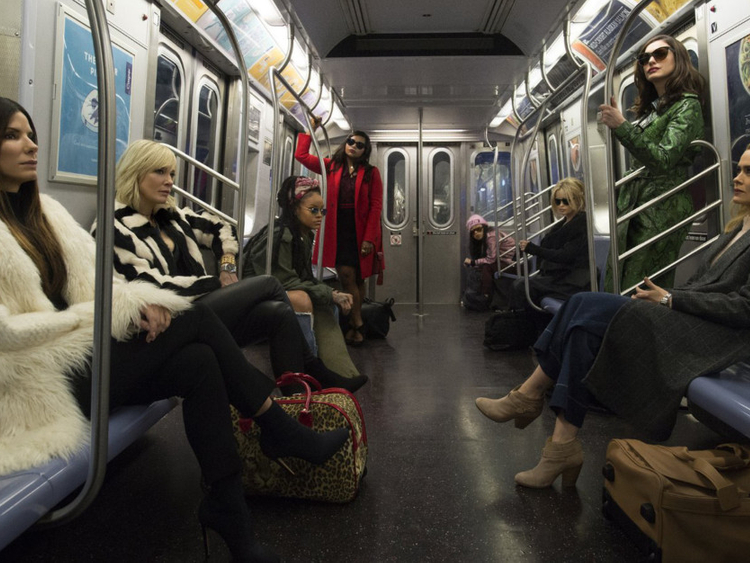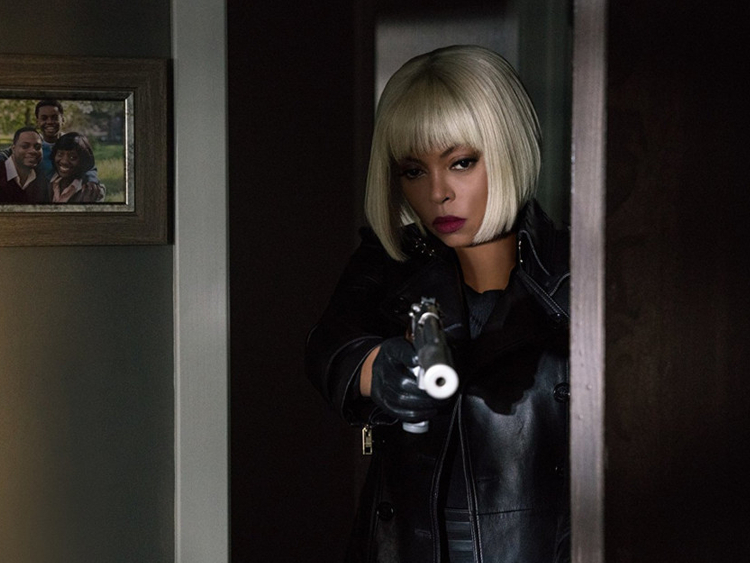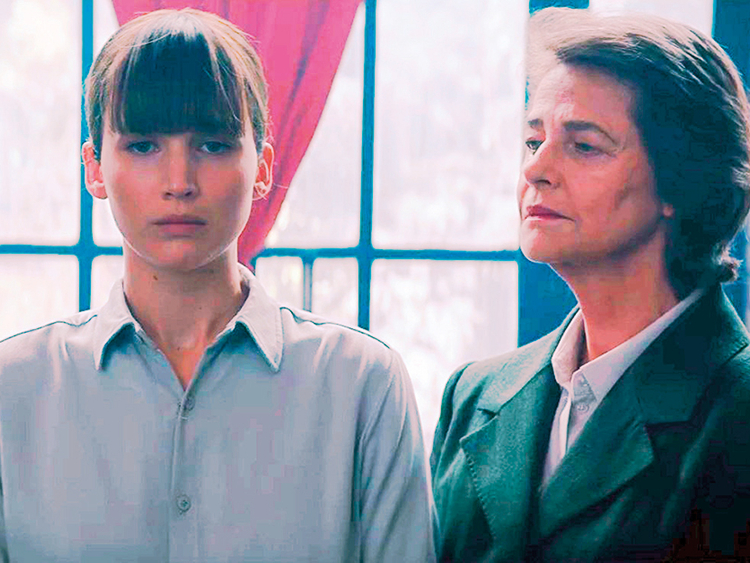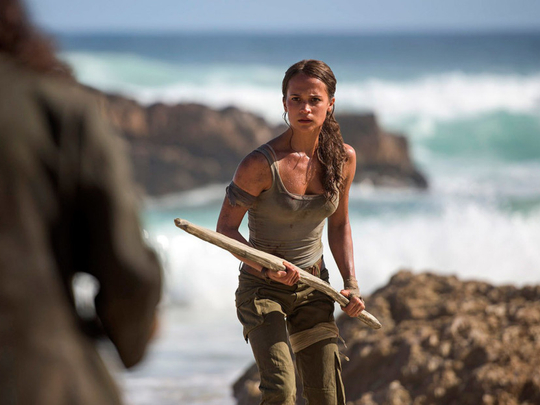
After #MeToo and allegations of predatory behaviour by powerful men in Hollywood, it feels good for the soul that the year in film kicked off with news that women rule the box office. Last year, the three most popular films in the US had female leads, with Star Wars: The Last Jedi at No 1, followed by Beauty and the Beast and Wonder Woman in third place. And there’s plenty more where they came from. Hollywood is still waking up to its masculinity problem, but 2018 looks as if it could be the year powerful women roar on screen in female-driven sci-fi, action blockbusters and super-sleuth thrillers.
First up, in February, Ex Machina director Alex Garland’s eco-sci-fi, Annihilation, looks like Ghostbusters with a degree in biology; Natalie Portman and Jennifer Jason Leigh star as scientists in boiler suits leading an all-woman expedition to the site of an alien invasion. In March, Jennifer Lawrence finds her inner Jason Bourne in the cold war thriller Red Sparrow, playing a Russian ballerina turned spy, while Alicia Vikander will shoot her way to international superstardom as Lara Croft in the Tomb Raider reboot.
And forget boring boys in tights with superpowers, summer’s hottest film is Ocean’s 8, the all-female crime caper spin-off released in June. If the trailer is anything to go by, sunglasses will be necessary to shield against the combined star-wattage of Cate Blanchett, Sandra Bullock, Helena Bonham Carter, Rihanna, Mindy Kaling, Anne Hathaway, Sarah Paulson and Awkwafina playing an octet of crims pulling off a $150 million (Dh550.86 million) diamond necklace heist at the Met Ball. In October, Claire Foy, star of Netflix’s The Crown clearly over the tweeds and tiaras — steps into Rooney Mara’s skintight leathers as Lisbeth Salander in The Girl in the Spider’s Web.
Female stars in high-adrenalin blockbusters are nothing new. (Top of my head: Sigourney Weaver in the Alien franchise, Linda Hamilton in the Terminators, Thelma and Louise, Angelina Jolie as Lara Croft and Salt, Milla Jovovich in Resident Evil, Scarlett Johansson in Lucy.)
But statistics reveal how few opportunities there are. In 2016, while 29 per cent of the top-100 grossing films had female leads, the figure for action movies scraped in at just 3 per cent.
It would be pleasing to think that a new age of empowered women on screen is dawning in reaction to #MeToo and Harvey Weinstein. But 2018’s kick-butt films would have been greenlit long before the last year’s upsetting revelations. So what’s going on? Is Hollywood finally getting into the swing of the Bechdel test?
In part, we have Hermione Granger and Katniss Everdeen to thank for the rise of the women-centred blockbusters, says Dr Shelley Cobb, associate professor of film at the University of Southampton. “I think Harry Potter and The Hunger Games were the turning point. You had these younger characters appealing to a millennial audience that grew older with them. Now that audience is an adult audience — young women and men who are interested in action heroes and heroines.”
Kate Muir, the screenwriter and former critic, says that the industry’s sudden interest in female-driven blockbusters boils down to hard cash. “I think it’s about economics, which is what Hollywood always pays most attention to. Over the past 10 years, people have realised that a woman can hold the box office in a big, big way.”
She adds that the small screen has blazed a trail with its portrayal of “powerful, conflicted and complex” female heroes. “We’ve seen these fantastic women detectives over the past 10 years. We’ve seen these incredibly weird and wonderful female characters on our TV screen, but never in a cinema. There’s a real appetite for them and the executives are aware of that appetite.”
The industry found out exactly how hungry audiences are for female action stars last year when Wonder Woman stormed cinemas (kicking that smug smile off the face of Ben Affleck’s lumbering Batman). A lightning bolt movie, praised by Hillary Clinton as “inspiring”, it arrived with perfect timing, speaking to the feminist zeitgeist (not that all feminists agree it is feminist).
Perhaps most significantly, as the year’s most successful comic book movie, Wonder Woman has also put an end to the false narratives that the Hollywood boy’s club has been pedalling for years (sample: “men don’t watch films about women”, “a female star isn’t bankable as the lead in a blockbuster”). And it has been reported that director Patty Jenkins has negotiated a record pay cheque for a woman of between $7 million and $9 million to make the sequel. “It matters,” says Muir. “Little girls wore Wonder Woman Halloween costumes last year and will wear Lara Croft this year,’” she says. “That’s really percolated the culture and changed the way girls are growing up.”
Melissa Silverstein, the founder and editor of website Women and Hollywood, makes the sharp observation that women’s stories have been ignored for so long, that they now look shiny and new. “Honestly, the thing about female content now is that it’s fresh content, because it’s been neglected for so long. You look at these women who have always been the sidekicks in the movies. What we’re saying now is let’s make them centre of the action.”
A film that she has got eye on in 2018 is the action thriller Proud Mary, featuring Hidden Figures star Taraji P Henson as a hit woman with a gun collection that would make John Wick green with envy (it is out in March). “I’ll be interested to see how it does,” says Silverstein. “We need more leads who are not white and also not young [Henson is 47 and African American]. That’s exciting for me, how we branch out from the thing that became the norm: young white girls.”
Elsewhere, two of 2018’s most anticipated movies have female actors of colour front and centre. Ava DuVernay has cast 12 Years a Slave’s Storm Reid as Meg Murry, the teenage girl saving the world in her adaptation of Madeleine L’Engle’s A Wrinkle in Time. Chadwick Boseman is technically star of Marvel’s Black Panther, but watch the trailer and it is tempting to think that Wakanda’s female warriors (Lupita Nyong’o, Angela Bassett, Danai Gurira, Letitia Wright) will steal the show.
“The white action heroine has a longer history,” says Cobb. She believes that we may be beginning to see the first shoots of Hollywood’s attempt to tackle the lack of diversity in film: “That’s not to suggest that this is a radical change that fixes everything forever, but I think you can relate these [films] to #OscarsSoWhite.”
It took me a couple of goes to watch the trailer for Red Sparrow in full. Two shots of Lawrence in a swimming costume, neckline plunging to her tummy button, put me off. Don’t get me wrong, she looks incredible. But did we really need to see her cossie in the trailer? Twice? Which brings us to the disappointing fact that just one 2018’s female-centred movies I’ve been talking to the experts about is directed by a woman: DuVernay’s A Wrinkle in Time. So expect plenty of male gaze sexualising of female characters along with the badassery.
Patty Jenkins made Warner Bros $413 million at the box office with Wonder Woman, but Hollywood still can’t shake the feeling that women can’t be trusted with a tentpole movie.
“Women directors are perceived as a risk,” says Alice Lowe, who made the horror-thriller Prevenge. “Having said that, I do think women for whatever reason, societal, nature or nurture, can doubt their own abilities. Sometimes you see a male director blazing in with no clue what they doing but utter confidence in their own brilliance. They can balls it up, but it doesn’t matter, they perceive themselves as a success, and so it’s water off a duck’s back. I think I would like a pinch of that attitude myself.”
Lowe also talks about the industry’s rigid thinking about the kinds of films women should be directing. “What I have experienced is being asked to direct ‘women films’. As if ‘women’ are a type of niche! By this I mean a film that has a female lead and maybe themes that are seen as exclusively ‘female’: motherhood, romance, emotions. Sometimes these scripts might be great. But you do think: I am a human being, I am capable of a range of things. Why am I only considered for these projects? Does that mean I’m being excluded from others?”
Last word to Silverstein, who says it will take time to tell how the sexual misconduct scandal will change the stories we see on our screens: “Today is the first day Hollywood is back in LA [after the holidays]. There’s still reporting on stories of sexual harassment. Right now, there’s a lot of nervousness, but I don’t think we’ve ever seen people more attuned to women in Hollywood.”



